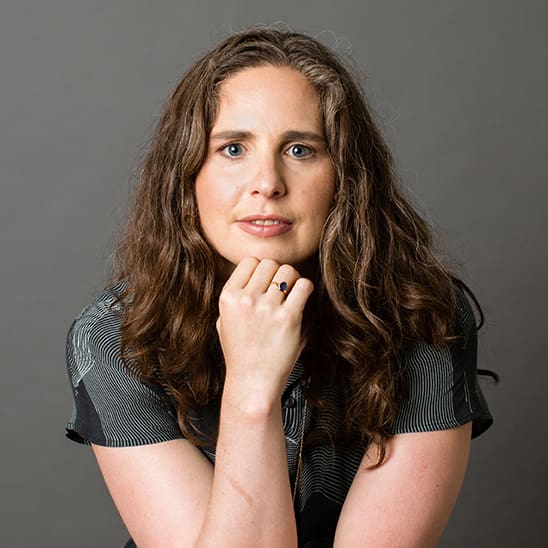Data Feminism Symposium
Data science for whom? Data science by whom? Data science with whose interests in mind?
Professors Catherine D’Ignazio and Lauren Klein discussed themes from their book, Data Feminism, and the relationships between science, society and technology at a public webinar on May 12, 2021. In the reality where data and information are power, intersectional feminist thinking allows us to move beyond issues of identity to critically examine how the inequalities of our society influence the data science technologies we create and data we use for research and decision making.
This presentation encourages aspiring and practicing data scientists to leverage their skills to examine and challenge structures of power, interrogate and expose inequalities, rethink binaries and hierarchies, elevate emotion and embodiment, embrace pluralism, consider context, make labor visible, and teach with authentic and meaningful datasets. The hosted Q&A with the presenters emphasizes the implications for how we develop and apply structurally influenced data science technologies, the role for educators, and need for continued academic research and investment in this space.
This live event engaged over 350 individuals from UC Davis and beyond, including university faculty, staff and alumni, industry data scientists, and students from high school through graduate school hailing from 19 countries. This event was hosted by Drs. Emily Merchant, Lindsay Poirier, and Pamela Reynolds at UC Davis, who lead DataLab’s Data Feminism research and learning cluster.
ABSTRACT: As data are increasingly mobilized in the service of governments and corporations, their unequal conditions of production, their asymmetrical methods of application, and their unequal effects on both individuals and groups have become increasingly difficult for data scientists–and others who rely on data in their work–to ignore. But it is precisely this power that makes it worth asking: “Data science by whom? Data science for whom? Data science with whose interests in mind? These are some of the questions that emerge from what we call data feminism, a way of thinking about data science and its communication that is informed by the past several decades of intersectional feminist activism and critical thought. Illustrating data feminism in action, this talk will show how challenges to the male/female binary can help to challenge other hierarchical (and empirically wrong) classification systems; it will explain how an understanding of emotion can expand our ideas about effective data visualization; how the concept of invisible labor can expose the significant human efforts required by our automated systems; and why the data never, ever “speak for themselves.” The goal of this talk, as with the project of data feminism, is to model how scholarship can be transformed into action: how feminist thinking can be operationalized in order to imagine more ethical and equitable data practices.
Speakers

Catherine D’Ignazio
Catherine D’Ignazio is a scholar, artist/designer and hacker mama who focuses on feminist technology, data literacy and civic engagement. She has run reproductive justice hackathons, designed global news recommendation systems, created talking and tweeting water quality sculptures, and led walking data visualizations to envision the future of sea level rise. With Rahul Bhargava, she built the platform Databasic.io, a suite of tools and activities to introduce newcomers to data science. Her 2020 book from MIT Press, Data Feminism, co-authored with Lauren Klein, charts a course for more ethical and empowering data science practices. Her research at the intersection of technology, design & social justice has been published in the Journal of Peer Production, the Journal of Community Informatics, and the proceedings of Human Factors in Computing Systems (ACM SIGCHI). Her art and design projects have won awards from the Tanne Foundation, Turbulence.org and the Knight Foundation and exhibited at the Venice Biennial and the ICA Boston. D’Ignazio is an Assistant Professor of Urban Science and Planning in the Department of Urban Studies and Planning at MIT. She is also Director of the Data + Feminism Lab which uses data and computational methods to work towards gender and racial equity, particularly in relation to space and place.

Lauren Klein
Lauren Klein is an associate professor in the departments of English and Quantitative Theory & Methods at Emory University, where she also directs the Digital Humanities Lab. Before moving to Emory, she taught in the School of Literature, Media, and Communication at Georgia Tech. Klein works at the intersection of digital humanities, data science, and early American literature, with a research focus on issues of gender and race. She has designed platforms for exploring the contents of historical newspapers, modeled the invisible labor of women abolitionists, and recreated forgotten visualization schemes with fabric and addressable LEDs. In 2017, she was named one of the “rising stars in digital humanities” by Inside Higher Ed. She is the author of An Archive of Taste: Race and Eating in the Early United States (University of Minnesota Press, 2020) and, with Catherine D’Ignazio, Data Feminism (MIT Press, 2020). With Matthew K. Gold, she edits Debates in the Digital Humanities, a hybrid print-digital publication stream that explores debates in the field as they emerge. Her current project, Data by Design: An Interactive History of Data Visualization, 1786-1900, was recently funded by an NEH-Mellon Fellowship for Digital Publication.
Make sure to register for the talk here. Space is limited, so don’t wait!